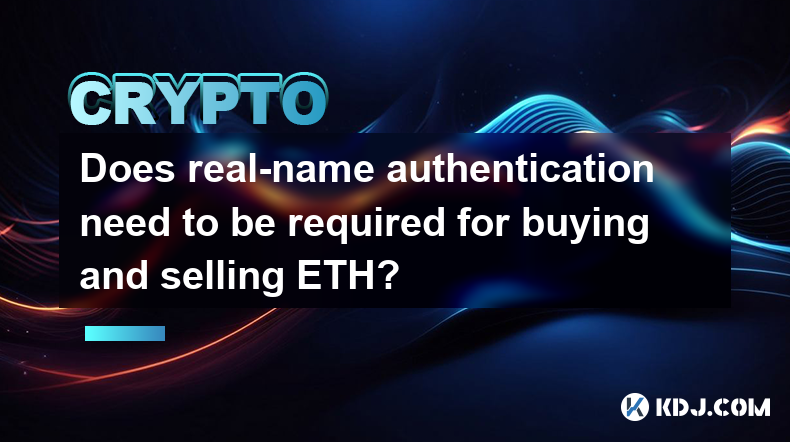-
 Bitcoin
Bitcoin $84,993.8786
0.34% -
 Ethereum
Ethereum $1,599.9353
1.27% -
 Tether USDt
Tether USDt $0.9999
-0.01% -
 XRP
XRP $2.0813
0.78% -
 BNB
BNB $592.4105
0.82% -
 Solana
Solana $138.1937
3.17% -
 USDC
USDC $1.0000
0.00% -
 Dogecoin
Dogecoin $0.1589
2.71% -
 TRON
TRON $0.2413
-1.55% -
 Cardano
Cardano $0.6307
2.60% -
 UNUS SED LEO
UNUS SED LEO $9.3881
1.71% -
 Chainlink
Chainlink $12.8366
1.65% -
 Avalanche
Avalanche $19.2740
1.26% -
 Stellar
Stellar $0.2445
1.24% -
 Toncoin
Toncoin $2.9868
-0.07% -
 Shiba Inu
Shiba Inu $0.0...01221
3.10% -
 Hedera
Hedera $0.1669
0.87% -
 Sui
Sui $2.1351
1.39% -
 Bitcoin Cash
Bitcoin Cash $336.8750
2.70% -
 Hyperliquid
Hyperliquid $18.0804
6.57% -
 Polkadot
Polkadot $3.7246
1.15% -
 Litecoin
Litecoin $76.4144
1.52% -
 Dai
Dai $0.9999
0.00% -
 Bitget Token
Bitget Token $4.4597
2.23% -
 Ethena USDe
Ethena USDe $0.9992
0.00% -
 Pi
Pi $0.6437
5.71% -
 Monero
Monero $212.9449
-1.50% -
 Uniswap
Uniswap $5.2448
1.29% -
 Pepe
Pepe $0.0...07289
2.88% -
 OKB
OKB $50.8316
2.01%
Does real-name authentication need to be required for buying and selling ETH?
Real-name authentication for buying/selling ETH varies by platform and jurisdiction; it's crucial for preventing fraud but can compromise user privacy.
Apr 17, 2025 at 09:56 pm

The question of whether real-name authentication is required for buying and selling Ethereum (ETH) is a common concern for many in the cryptocurrency community. Understanding the necessity of real-name authentication is crucial, as it can vary depending on the platform and jurisdiction you are operating within. In this article, we will delve into the specifics of when and why real-name authentication might be necessary, the implications of such requirements, and how you can navigate these regulations effectively.
The Basics of Real-Name Authentication in Cryptocurrency
Real-name authentication, often referred to as Know Your Customer (KYC) verification, is a process used by financial institutions and cryptocurrency exchanges to verify the identity of their users. The primary goal of KYC is to prevent illegal activities such as money laundering, fraud, and terrorist financing. When it comes to buying and selling ETH, the requirement for real-name authentication can differ significantly based on the platform you use and the country you reside in.
Platforms Requiring Real-Name Authentication
Many of the well-known cryptocurrency exchanges, such as Coinbase, Binance, and Kraken, require users to complete KYC verification before they can trade ETH. These platforms often have strict policies to comply with local and international regulations, including the Bank Secrecy Act (BSA) in the United States and the Anti-Money Laundering (AML) directives in the European Union. Here is a detailed look at how to complete real-name authentication on some popular platforms:
Coinbase:
- Visit the Coinbase website and sign up for an account.
- Navigate to the "Profile" section and click on "Verify Your Identity."
- Provide your personal information, including your full name, date of birth, and address.
- Upload a government-issued ID, such as a passport or driver's license.
- Wait for Coinbase to review and approve your verification.
Binance:
- Log into your Binance account.
- Go to the "User Center" and select "Identification."
- Choose the type of verification you need (Basic or Advanced).
- Fill in your personal details and upload the required documents, such as a national ID or passport.
- Complete any additional steps, such as taking a selfie with your ID.
- Await the verification process to be completed by Binance.
Kraken:
- Access your Kraken account.
- Click on "Get Verified" in the top right corner.
- Select the level of verification you want (Starter, Intermediate, or Pro).
- Enter your personal information and upload the necessary identification documents.
- Follow any additional prompts, such as providing proof of address.
- Wait for Kraken to process your verification request.
Jurisdictions and Their Impact on Real-Name Authentication
The requirement for real-name authentication can also be influenced by the jurisdiction in which you are trading. Countries with strict financial regulations tend to mandate KYC compliance for all cryptocurrency transactions. For instance, in the United States, the Financial Crimes Enforcement Network (FinCEN) requires cryptocurrency exchanges to adhere to KYC and AML regulations. Similarly, in the European Union, the Fifth Anti-Money Laundering Directive (5AMLD) extends these requirements to crypto platforms.
On the other hand, some jurisdictions may have more lenient regulations or no specific laws governing cryptocurrency transactions. In such cases, you might find platforms that do not require real-name authentication, though these are becoming increasingly rare as global standards tighten.
Implications of Real-Name Authentication
The implications of real-name authentication are multifaceted. On one hand, it enhances security by reducing the risk of fraudulent activities and ensuring that transactions are traceable. This can provide a safer trading environment for users and increase trust in the platform. On the other hand, it raises concerns about privacy and data security. Users must trust that their personal information will be handled securely and not misused or leaked.
Additionally, real-name authentication can limit the anonymity that many cryptocurrency enthusiasts value. For those who prioritize privacy, this requirement can be a significant drawback. However, it's worth noting that many platforms offer different levels of verification, allowing users to choose the level of privacy they are comfortable with, albeit with varying limits on trading activities.
Alternatives to Platforms Requiring Real-Name Authentication
For those who wish to avoid real-name authentication, there are alternative methods to buy and sell ETH. Peer-to-peer (P2P) exchanges and decentralized exchanges (DEXs) often do not require KYC verification. Here are some options:
P2P Exchanges:
- Platforms like LocalBitcoins and Paxful allow users to trade directly with one another without needing to go through a centralized exchange.
- Users can set their own terms and choose how much information they want to disclose.
Decentralized Exchanges (DEXs):
- DEXs like Uniswap and SushiSwap operate on blockchain technology and do not require users to provide personal information.
- Transactions are executed directly between users' wallets, maintaining a higher level of privacy.
Navigating Real-Name Authentication Requirements
If you find yourself in a situation where real-name authentication is mandatory, there are steps you can take to ensure a smooth verification process:
- Ensure Accuracy: Make sure all the information you provide is accurate and matches the documents you upload.
- Use High-Quality Images: When uploading identification documents, use clear, high-quality images to avoid delays in the verification process.
- Understand the Platform's Requirements: Each platform may have slightly different requirements, so take the time to understand what is needed before starting the verification process.
- Keep Your Information Secure: Be cautious about where you store your personal information and ensure that the platform you are using has robust security measures in place.
Frequently Asked Questions
Q: Can I buy and sell ETH anonymously on centralized exchanges?
A: It is highly unlikely to buy and sell ETH anonymously on centralized exchanges, as most require some form of KYC verification to comply with regulations. However, some centralized exchanges may offer tiers of verification with different levels of privacy and trading limits.
Q: Are there any risks associated with using P2P exchanges to avoid real-name authentication?
A: Yes, using P2P exchanges can come with risks such as scams, fraud, and the potential for dealing with unreliable traders. It's essential to use reputable platforms and take precautions to protect your funds.
Q: How can I protect my privacy while still complying with real-name authentication requirements?
A: To protect your privacy, choose platforms that offer strong security features, use a VPN for added anonymity, and only provide the minimum required information during the verification process. Additionally, consider using different email addresses and wallets for different platforms to compartmentalize your data.
Q: What should I do if my real-name authentication is rejected by a platform?
A: If your real-name authentication is rejected, review the platform's requirements and ensure all provided information and documents are accurate and clear. You may need to resubmit your application or contact customer support for further assistance.
Disclaimer:info@kdj.com
The information provided is not trading advice. kdj.com does not assume any responsibility for any investments made based on the information provided in this article. Cryptocurrencies are highly volatile and it is highly recommended that you invest with caution after thorough research!
If you believe that the content used on this website infringes your copyright, please contact us immediately (info@kdj.com) and we will delete it promptly.
- Codename:Pepe dips 30% from March highs, sparking investor interest in Codename:Pepe's AI-powered alternative.
- 2025-04-19 14:20:14
- Despite Its Elevated Position as the World's Premier Meme Coin, Dogecoin (DOGE) Has Been Struggling
- 2025-04-19 14:20:13
- Market Update: Crypto Market Remains Steady at $2.79 Trillion with Minimal 0.14% Growth
- 2025-04-19 14:15:13
- Can Mantra (OM) Bounce Back? How High Can the Price Go After 90% Crash?
- 2025-04-19 14:15:13
- President Donald Trump Said at a 2024 Campaign Event That He Wanted All Remaining Bitcoin
- 2025-04-19 14:10:13
- Qubetics ($TICS): The New Frontier in Blockchain Interoperability
- 2025-04-19 14:10:13
Related knowledge

Will the Bitcoin payment platform affect the payment business of traditional banks?
Apr 19,2025 at 09:56am
The emergence of Bitcoin and other cryptocurrencies has sparked a significant debate about their impact on the traditional financial sector, particularly on the payment business of banks. The Bitcoin payment platform, with its decentralized nature and promise of lower transaction fees, poses both a challenge and an opportunity for traditional banks. Thi...

How to avoid address input errors when using Bitcoin payment platforms?
Apr 19,2025 at 02:15am
When using Bitcoin payment platforms, avoiding address input errors is crucial to ensure your transactions are secure and reach the intended recipient. Address input errors can lead to loss of funds, as Bitcoin transactions are irreversible. This article will guide you through various methods and best practices to prevent such mistakes. Understanding Bi...

What are the advantages of Bitcoin payment platforms in cross-border transactions?
Apr 19,2025 at 01:35pm
Bitcoin payment platforms have emerged as a revolutionary tool for cross-border transactions, offering numerous advantages that traditional banking systems struggle to match. In this article, we will explore the key benefits of using Bitcoin payment platforms for international payments, focusing on speed, cost, accessibility, security, and transparency....

Why are more and more merchants accepting Bitcoin payments?
Apr 19,2025 at 12:29pm
The increasing acceptance of Bitcoin as a payment method by merchants is a notable trend within the cryptocurrency circle. This shift is driven by several key factors that make Bitcoin an attractive option for businesses. Understanding these factors can provide insights into the growing acceptance of Bitcoin payments. Benefits of Lower Transaction FeesO...

How to avoid slippage in SOL transactions?
Apr 19,2025 at 12:15pm
Slippage in cryptocurrency transactions, particularly in Solana (SOL) transactions, refers to the difference between the expected price of a trade and the price at which the trade is actually executed. Slippage can occur due to various factors such as market volatility, liquidity, and the size of the transaction. For traders and investors dealing with S...

How to buy SOL with USDT?
Apr 19,2025 at 03:49am
Introduction to Buying SOL with USDTPurchasing SOL, the native cryptocurrency of the Solana blockchain, using USDT (Tether), a stablecoin pegged to the US dollar, is a common transaction within the cryptocurrency market. This process involves several steps, including choosing a suitable exchange, transferring USDT, and executing the trade. In this artic...

Will the Bitcoin payment platform affect the payment business of traditional banks?
Apr 19,2025 at 09:56am
The emergence of Bitcoin and other cryptocurrencies has sparked a significant debate about their impact on the traditional financial sector, particularly on the payment business of banks. The Bitcoin payment platform, with its decentralized nature and promise of lower transaction fees, poses both a challenge and an opportunity for traditional banks. Thi...

How to avoid address input errors when using Bitcoin payment platforms?
Apr 19,2025 at 02:15am
When using Bitcoin payment platforms, avoiding address input errors is crucial to ensure your transactions are secure and reach the intended recipient. Address input errors can lead to loss of funds, as Bitcoin transactions are irreversible. This article will guide you through various methods and best practices to prevent such mistakes. Understanding Bi...

What are the advantages of Bitcoin payment platforms in cross-border transactions?
Apr 19,2025 at 01:35pm
Bitcoin payment platforms have emerged as a revolutionary tool for cross-border transactions, offering numerous advantages that traditional banking systems struggle to match. In this article, we will explore the key benefits of using Bitcoin payment platforms for international payments, focusing on speed, cost, accessibility, security, and transparency....

Why are more and more merchants accepting Bitcoin payments?
Apr 19,2025 at 12:29pm
The increasing acceptance of Bitcoin as a payment method by merchants is a notable trend within the cryptocurrency circle. This shift is driven by several key factors that make Bitcoin an attractive option for businesses. Understanding these factors can provide insights into the growing acceptance of Bitcoin payments. Benefits of Lower Transaction FeesO...

How to avoid slippage in SOL transactions?
Apr 19,2025 at 12:15pm
Slippage in cryptocurrency transactions, particularly in Solana (SOL) transactions, refers to the difference between the expected price of a trade and the price at which the trade is actually executed. Slippage can occur due to various factors such as market volatility, liquidity, and the size of the transaction. For traders and investors dealing with S...

How to buy SOL with USDT?
Apr 19,2025 at 03:49am
Introduction to Buying SOL with USDTPurchasing SOL, the native cryptocurrency of the Solana blockchain, using USDT (Tether), a stablecoin pegged to the US dollar, is a common transaction within the cryptocurrency market. This process involves several steps, including choosing a suitable exchange, transferring USDT, and executing the trade. In this artic...
See all articles
























































































